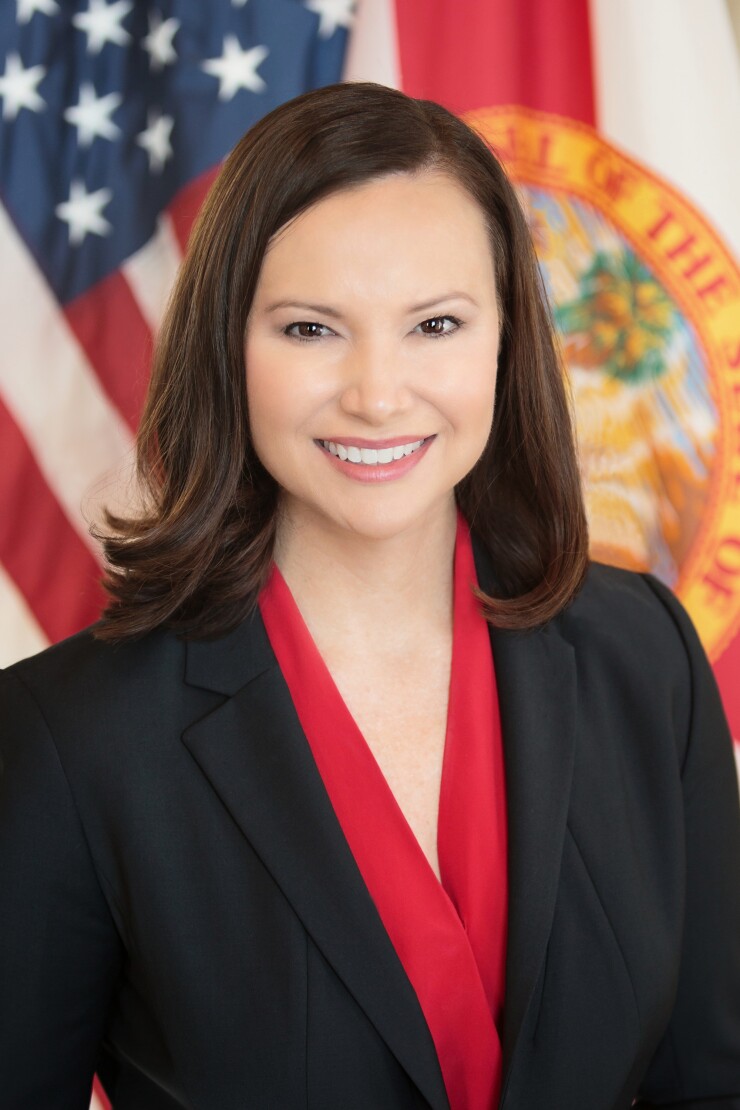The letters are flying in the partisan debate over environmental, social and governance issues.
A group of 20 state attorneys general led by Florida have slammed the
In the
Florida Attorney General’s Office
Treasury’s position was outlined in a July letter that was itself a response to a
The missives are part of the larger culture war over the use of ESG factors in investing, banking, procurement and other areas. Over the last few years, Republican-led states have enacted legislation pertaining to ESG. That includes Florida’s HB 989, which expanded on an earlier measure restricting banks’ ability to refuse service and also
The Republican attorneys general defended HB 989, saying it ensures “that financial institutions focus on true risk-based factors and stay out of the business of forcing radical social policies.”
Treasury’s warning, the AGs said, marks “the latest attempt by the Biden-Harris administration to fearmonger and stoke confusion about state laws to advance activists’ extreme agendas.” The idea that anti-ESG state laws may harm national security are “outlandish” and “deliberately misleads financial institutions about these state laws.”
A Treasury spokesperson said in an email that the department “agrees with the bipartisan members of Congress that it is imperative that state laws do not increase the risk that international drug traffickers, transnational organized criminals, terrorists, and corrupt foreign officials use the U.S. financial system to launder money, evade sanctions, and threaten our national security.”
Separately, Oklahoma State Treasurer Todd Russ and 25 other Republican state finance officials on Monday
“Adding prescriptive sustainability and GHG rules that apply far more broadly is also inconsistent with the core GAAP principles of sincerity (because they promote a partisan agenda to achieve the goals of the Paris Agreement) and prudence (because they call for speculation about the existence and impact of possible future climate-related laws and regulations),” the finance officials wrote.
They called out the Securities and Exchange Commission’s climate disclosure proposal, among other regulation, saying they are “inconsistent with the core GAAP principles of materiality, sincerity, and prudence.”
A FASB spokesperson confirmed it received the letter and posted it on the website but declined to comment on it.
However, FASB board chair Rich Jones noted Tuesday that all “projects on its agenda” align with its mission to “establish and improve standards of financial accounting and reporting.” Jones made the comments at a Financial Accounting Foundation Board of Trustees meeting.
“Said another way,” he added, “we do one thing and one thing only, financial accounting and reporting standards.”
